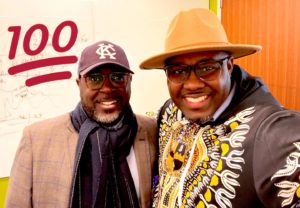Vermont’s new ‘equity’ rules may negatively impact private, Christian schools
Vermont’s State Board of Education might be incorporating equity rules for private schools that receive taxpayer dollars – rules which previously only applied to public schools.
The change is…

Vermont’s State Board of Education might be incorporating equity rules for private schools that receive taxpayer dollars – rules which previously only applied to public schools.
The change is being driven by a coalition of identity advocacy groups, lawmakers and progressive state officials, according to VTDigger.com.
If the proposed rule changes are forced through, it could negatively impact Christian private education.
The equity rules were created in 2019 by progressive lawmakers who formed the Ethnic and Social Equity Standards Advisory Working Group.
Their bill, known as Act 1, was subsequently passed by the Vermont Legislature, with the help of advocacy groups such as the Education Justice Coalition, said VTDigger.com.
The intent of the legislation was to “eradicate any racial bias” at public schools, and promote the “history, contributions and perspectives of ethnic groups and social groups” while allowing students to “explore safely questions of identity, race equality and racism,” according to the Vermont Agency of Education.
By 2022, however, the state was working actively to expand the law to include private schools that received taxpayer dollars via tuition, considering requiring new ethnic studies curriculum to be incorporated into private schools.
“Requiring that public school rules apply to independent schools would be like requiring someone to wear their left shoe on their right foot and right shoe on their left foot,” Bill Moore, the executive director of the Vermont Independent Schools Association wrote to the working group this spring, according to VTDigger.com.
Moore added: “Feet are not identical — symmetrical, but not identical.”
In May, the state announced that they would not pursue the ethnic studies requirement for private schools.
That announcement came just weeks after an uproar ensued when the Board of Education announced under the new equity standards they would no longer be using the term “male” and “female” in sex ed classes.
“In an effort to align our curriculum with our equity policy, teachers will be using gender inclusive language throughout this unit,” wrote one school principal about the changes, according to the New York Post.
Caroline Moore, the vice president of Parents Defending Education, blasted the change in a statement to The Post.
“This manipulation of elementary anatomy and physiology is a bridge too far and a precursor to what we will see everywhere if the proposed changes to Title IX go into effect,” Moore said. “A boy is a boy and a girl is a girl. We all know this. So why are we pretending we don’t?”
The Title IX comparison is appropriate, because the same reasoning that requires universities which get federal dollars to go along with President Joe Biden’s rewriting of the definition of “sex” to mean gender identity under Title IX, is what is being used to try to enlarge Act 1 to include private schools.
“If you’re receiving public funds, then you should play by the same rules. Full stop,” said Rep. Mary-Katherine Stone, D/P-Burlington, the clerk of the Vermont House Committee on Education, reported the Digger. “Especially when it comes to rules that impact anti-discrimination.”
Stone and seven other legislators penned a letter to the state Board of Education demanding that the equity rules be enforced on private schools.
The legislators were joined by “public school advocates and officials from the state’s Human Rights Commission and Office of Racial Equity” in asking for the equity rules to apply to private schools, said the VT Digger.
Critics may wonder whether Act 1 was artfully named, to be followed by an Act II and an Act III.



